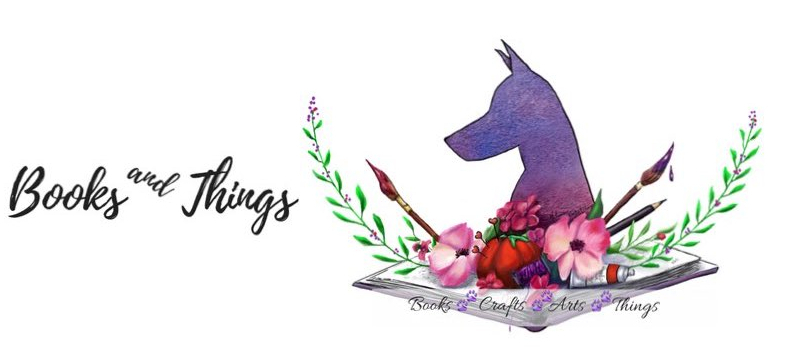 There are 2 excellent books that I've been wanting to write about. For the longest time I always believed I had dyslexia. Not a bad form of it, but enough to explain some of the reasons I couldn't do well in some subjects in school (like English... if you couldn't guess... lol) and great in others. I could go into my "differences" but that isn't what I wanted to write about. For anyone questioning their abilities in this area, or someone who just wants to find out more, I suggest, "In The Mind's Eye" by Thomas West and "The Gift of Dyslexia" by Ronald Davis.
There are 2 excellent books that I've been wanting to write about. For the longest time I always believed I had dyslexia. Not a bad form of it, but enough to explain some of the reasons I couldn't do well in some subjects in school (like English... if you couldn't guess... lol) and great in others. I could go into my "differences" but that isn't what I wanted to write about. For anyone questioning their abilities in this area, or someone who just wants to find out more, I suggest, "In The Mind's Eye" by Thomas West and "The Gift of Dyslexia" by Ronald Davis. From the book, "In The Mind's Eye": The computer-generated information superhighway could launch a new renaissance of creativity for millions of visual thinkers! Some of the greatest minds in politics, science, literature, and the arts experienced undetected learning disabilities that stopped them from assimilating information the same way as their peers. Some of our most original intellects Albert Einstein, Thomas Edison, Lewis Carroll, and Winston Churchill relied heavily on visual modes of thought, processing information in terms of images instead of words or numbers. In the "Mind's Eye" profiles gifted individuals who used non-traditional methods in their work as it explodes many myths about conventional intelligence and charts new vistas for today's computer visualisation technologies.Thomas G. West examines the learning difficulties experienced by these people and others, and how recent neurological research shows an association between visual talents and verbal difficulties. In the "Mind's Eye" probes new data on dyslexics to see how computers enhance the creative potential of visual thinkers, as well as interactive computer applications to all levels of education and work. Updated with a new preface, epilogue, and expanded notes, this volume could be the clarion call for educators and corporations to mine this untapped resource of highly creative talent in our midst.
From the book, "In The Mind's Eye": The computer-generated information superhighway could launch a new renaissance of creativity for millions of visual thinkers! Some of the greatest minds in politics, science, literature, and the arts experienced undetected learning disabilities that stopped them from assimilating information the same way as their peers. Some of our most original intellects Albert Einstein, Thomas Edison, Lewis Carroll, and Winston Churchill relied heavily on visual modes of thought, processing information in terms of images instead of words or numbers. In the "Mind's Eye" profiles gifted individuals who used non-traditional methods in their work as it explodes many myths about conventional intelligence and charts new vistas for today's computer visualisation technologies.Thomas G. West examines the learning difficulties experienced by these people and others, and how recent neurological research shows an association between visual talents and verbal difficulties. In the "Mind's Eye" probes new data on dyslexics to see how computers enhance the creative potential of visual thinkers, as well as interactive computer applications to all levels of education and work. Updated with a new preface, epilogue, and expanded notes, this volume could be the clarion call for educators and corporations to mine this untapped resource of highly creative talent in our midst. It is a fascinating read in how the mind works. In fact this book just doesn't go into how a dyslexic's brain processes things, it also explores other great minds like, Tesla. He was one who could process things like a dyslexic and not be dyslexic himself. For some this may sound boring, but quite the opposite, it is facinating. It is a journey into how people process the visual-spacial space.
The second book, "The Gift of Dyslexia" is one of my favorites because it helps everyone see dyslexia in a different light. It even helps explain why I LOVE to read, but still have problems in other areas. It is a great book to read for greater insight written by a dyslexic artist who is determined to help others.
From the book, "The Gift of Dyslexia: At the age of 38, Ronald D. Davis made a discovery about perception that enabled him to read a book cover to cover -- for the first time. The methods he devloped have helped thousands of children and adults around the world to overcome reading, writing, study and attention problems.

Have you ever seen the TV movie called "Anya's Bell"? These books reminded me of that story.
ReplyDeleteThe brain sure is an interesting thing, isn't it?
I've seen it. Cute show. Tear jerker too, if I remember correctly.
ReplyDeleteThese are a bit more academic, but shockingly still interesting. Yes, I was shocked. :)
Do this books discuss if there's a relationship between being artistic and dyslexic?
ReplyDeleteIt does have that aspect, but not to a big extent. The Gift goes a bit further there, but I think that is because he is artistic and could see all the other dyslexic artists.
ReplyDelete